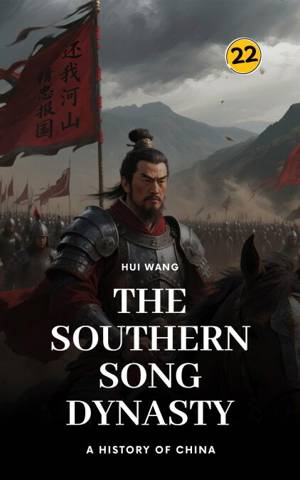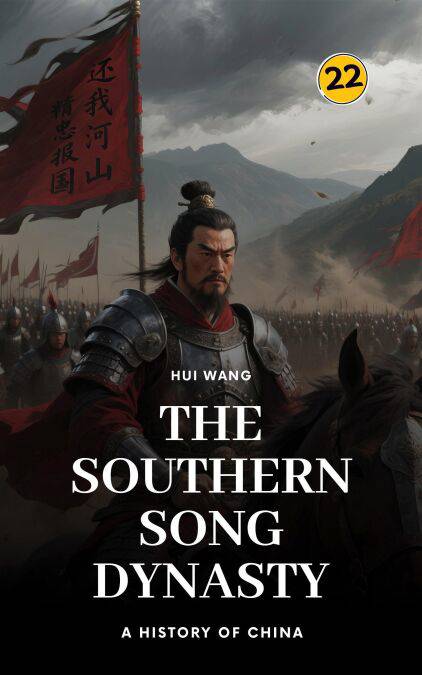
- Afhalen na 1 uur in een winkel met voorraad
- Gratis thuislevering in België vanaf € 30
- Ruim aanbod met 7 miljoen producten
- Afhalen na 1 uur in een winkel met voorraad
- Gratis thuislevering in België vanaf € 30
- Ruim aanbod met 7 miljoen producten
Omschrijving
The Southern Song Dynasty: A History of China, PART ONE, takes you on a journey through the rise, fall, and rebirth of one of China's most compelling dynasties. I didn't want this book to read like a dry catalog of dates and decrees; I wanted it to live, to breathe, and to be about the people who shaped a fractured world — emperors who bore the weight of exile, generals who made history on rivers and shores, and empresses whose influence moved courts. From the ashes of the Northern Song — after the Jingkang calamity and the sack of Kaifeng — a new regime rose under Emperor Gaozong (Zhao Gou), a ruler marked by loss but driven to rebuild. His reign opens the long arc of hope, betrayal, and survival that defines the Southern Song.
In these pages you'll meet warriors whose courage became legend. General Han Shizhong and the storied Liang Hongyu fight side by side, turning river engagements into moments remembered as much for heroism as for romance. In Sichuan, steadfast commanders — holding the frontier when others fled — kept pockets of resistance alive. And you'll encounter figures like Liu Yu, once a symbol of wild ambition, who reached for a crown only to see his short-lived realm, called Qi, collapse in his hands. Each of these characters shows a different face of loyalty — fierce, fragile, and deeply human.
At the heart of this book stands Yue Fei, the general whose name still drums through centuries. His ascent from a provincial soldier to the commander who drove campaigns against the Jurchen, his battlefield triumphs, and his bitter, politically engineered downfall at the hands of the crafty minister Qin Hui expose both the grandeur and the wounds of the Southern Song spirit. You'll watch how loyalty could be a shining crown and a crushing shackle, and how one man's single-minded devotion bent the arc of Chinese history. The clash between conscience and courtcraft in Yue Fei's life is not mere biography — it's a prism for power, politics, and the cost of truth.
But the tale does not end with his death. As open warfare quieted and a fragile peace was stitched together, the imperial court moved into a new era of delicate balances and hidden blades. In the decades that followed — through the reign of Emperor Xiaozong and into the years after — palace shadows deepened. A discreet but influential Empress Wu (not to be confused with the Tang's Wu Zetian) wielded patient, behind-the-scenes power, while later figures such as Empress Li Fengniang, the so-called Black Phoenix, burned with ambition and fierce pride. Their rivalries, their choices, and their unbending wills would push the empire into fresh storms of intrigue and transformation.
By the time you reach Guangzong's abdication in 1194 — when Emperor Guangzong's troubled mind and the reluctant rise of Emperor Ningzong shake the court — you'll feel the pulse of a dynasty that refused to fade away quietly. This is a story of resilience and fierce longing, of men and women clawing to keep their world from unravelling. If you love tales of empires, power, and human struggle, this book will pull you deep into the heart of the Southern Song Dynasty — a realm of courage, tragedy, and beauty that still feels vividly alive today.
Specificaties
Betrokkenen
- Auteur(s):
- Uitgeverij:
Inhoud
- Taal:
- Engels
- Reeks:
Eigenschappen
- Productcode (EAN):
- 9789189998650
- Verschijningsdatum:
- 29/07/2025
- Uitvoering:
- E-book
- Formaat:
- ePub

Alleen bij Standaard Boekhandel
Beoordelingen
We publiceren alleen reviews die voldoen aan de voorwaarden voor reviews. Bekijk onze voorwaarden voor reviews.








